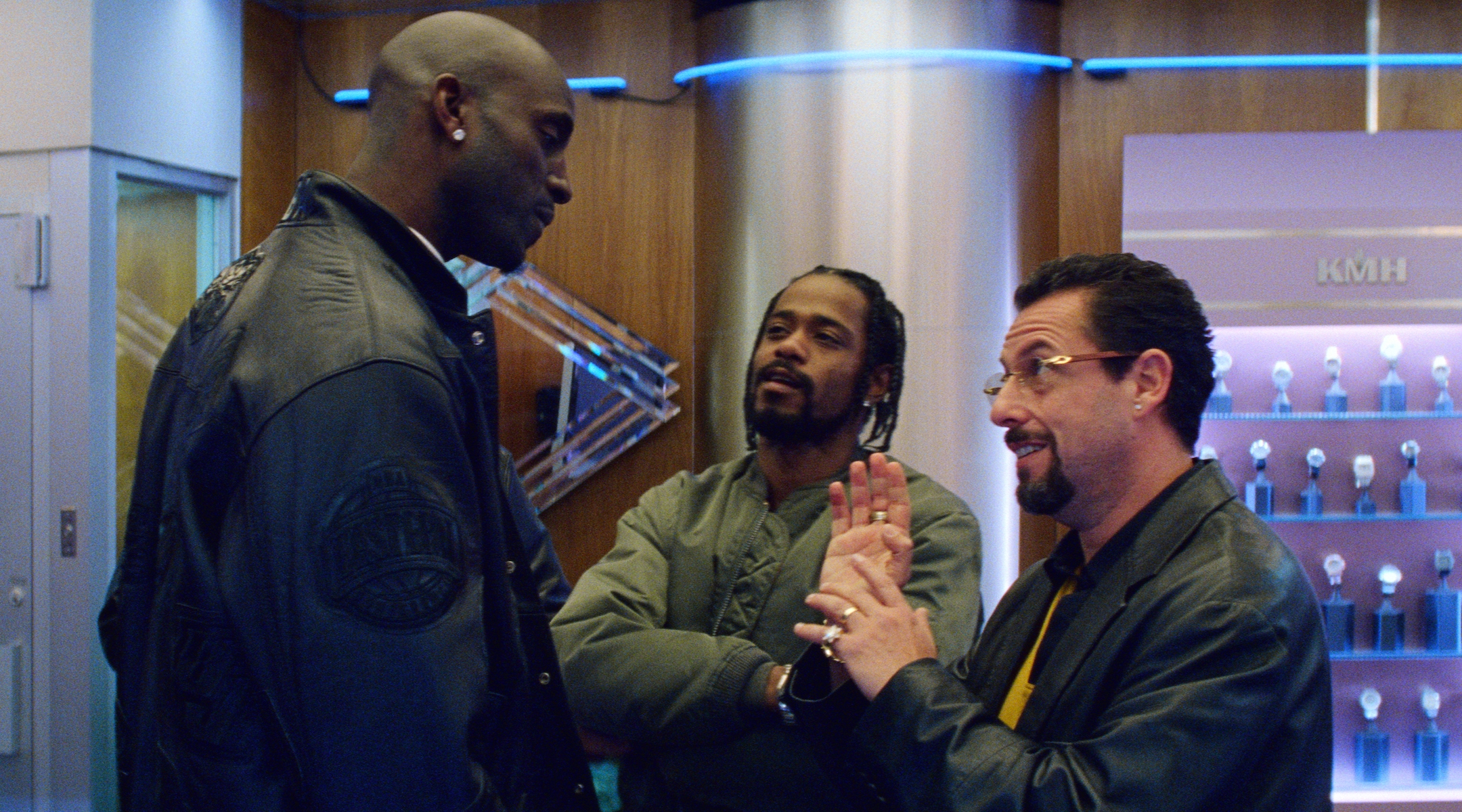Social distancing and staying inside is hard. Thankfully, accessing good things to watch during this time is not. This is the tenth installation of a weekly column on Jewish movies and TV shows that you should stream in quarantine.
Uncut Gems
Streams on: Netflix
Family friendly? No
(JTA) — Describing “Uncut Gems” as that movie that brought Adam Sandler rave reviews for playing a New York Jewish diamond dealer doesn’t do it justice.
If you haven’t seen it yet, expect to be on the edge of your seat with your heart racing for the entirety of the film’s two hours and 15 minutes.
Without spoiling too much of “Gems,” which was recently made available on Netflix, the basics are that Sandler plays the edgy jeweler Howard Ratner, whose gambling habit is as dangerous and volatile as his personal life. At every moment in the movie, it feels like he’s about to get into disastrous trouble or has barely escaped it — for the time being.
The Safdie brothers, who wrote and directed the movie, create an in-your-face image of New York City that feels like it’s out of a gritty 60s or 70s film like “Taxi Driver” or “Midnight Cowboy.” They totally nail the gaudy upper-middle class Jewish Long Island aesthetic — huge houses, nice cars, designer clothes, gelled hair, a semi-traditional Passover seder where you watch the NBA playoffs afterward. It feels authentic.
Sandler’s acting has gotten most of the attention, which is deserved. But Idina Menzel, playing his wife who has absolutely no patience for his BS, is the unsung hero of “Uncut Gems,” as our colleague Molly Tolsky wrote. The scene where she faces Sandler down while wearing her old bat mitzvah dress is reason enough to watch the movie.
An even less talked about aspect of the film, however, is its nuanced peek into the complicated relationship between Jews and blacks in the U.S.
Howard seems to sell to several black clients in the worlds of hip-hop and even sports — former NBA star Kevin Garnett plays a fictionalized version of himself — looking for flashy jewelry. His way into those worlds is his friend and assistant-of-sorts Demany (played by the talented Lakeith Stanfield), who brings clients in for a piece of the pie.

Lakeith Stanfield as Demany in “Uncut Gems.” (Screen shot from YouTube)
Howard and Demany have a working friendship that sometimes feels like a real friendship, until something goes terribly wrong (involving one very mysterious gem). Before that, the black and Jewish worlds of the movie coexisted and even bonded over a consumerist obsession with the jewelry that Howard peddles. As the story moves forward, grievances start to replace the partnership between Howard and some of his black associates.
But one thing that remains true is that both the diamond dealer Jews and the blacks portrayed in the movie all remain outsiders: Howard’s entire enterprise operates outside of the norms of normal society, and at times it even feels outside the boundaries of typical black market reality.
For example, a large part of the movie revolves around a gem mined by black Jews in Ethiopia that Howard takes great pains to obtain and hold onto — not your typical jewelry or drug deal. Then there’s the scheming surrounding an auction. And the sale of a piece that Howard promised to return to its owner. It goes on.
No matter their differences, the black and Jewish characters here are bound together by their lives in an underground reality, where they can exist as almost exaggerated versions of themselves.
It’s a symbolic take on the real history. Let Josh Safdie explain, as he did to InsideHook in December:
“If you look up the general connection between the Jews and the black community, it’s something of an ineffable bond… In the history of America, during the Civil Rights movement, a lot of Jewish activists took part because they felt a need to stand up in solidarity. One of the founders of the NAACP was a Jew! The connection is there, but it’s a complicated one, built around the sensation of being an other shut out from some sectors of society.”
You should not watch this movie if you’re looking for a break from the ever increasing anxiety surrounding us in this fraught national moment. The movie in no way solves questions of racial injustice either.
But if you are anxious, as many of us are, this is a good way to channel that emotion into a story that feels real but (thankfully) exists only on the screen. And while any time is a good time to examine and think about the ways blacks and Jews could work to build closer bonds, that theme is especially relevant now.
JTA has documented Jewish history in real-time for over a century. Keep our journalism strong by joining us in supporting independent, award-winning reporting.






